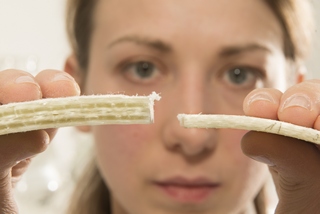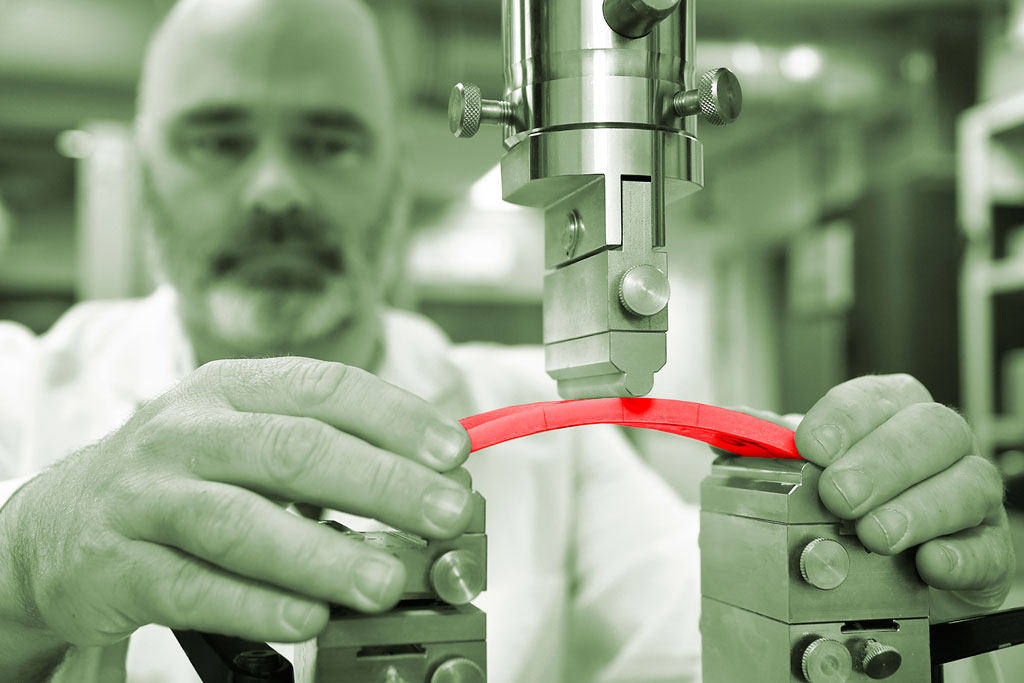
IKT’s Test Lab: Three-point-bending test of CIPP sample
How can you as a sewer network operator be sure that your newly installed CIPP liner is of good quality? How sure can you be that it will actually last the promised
50+ years? How can you know whether you have received the promised quality for your good money? There is a reliable yet inexpensive way to find out.
CIPP liners are made on site under conditions that are difficult to control. Every job site is different and liner quality depends on many factors. For example, the human factor and the environmental conditions play a major role.
CIPP liners are always created in situ on the day of installation. The risk is high that work may be done too quickly and too carelessly on the job site. Therefore, you cannot always be sure you have really received a good quality CIPP installation.
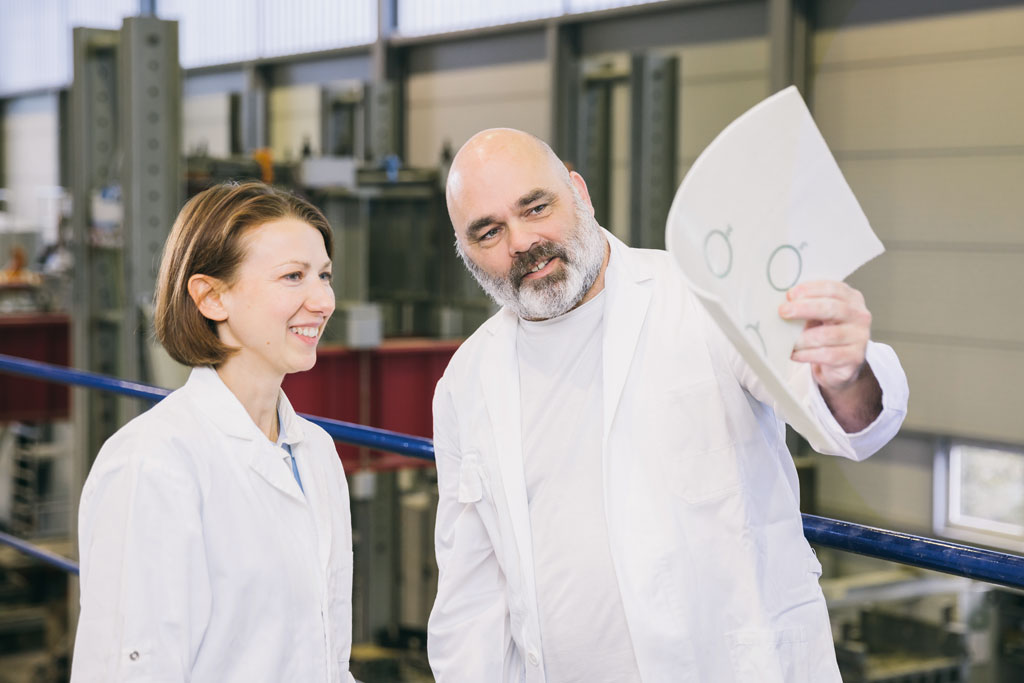
Initial assessment of a CIPP sample: searching for weak spots
CIPP Quality Risks
You have to ask yourself: Were the curing specifications complied with? Is the wall thickness strong enough to withstand ground water pressure? Was a cheap or an expensive resin used? Is the liner really water tight?
Liners with poor material characteristics may not be stable and sufficiently load-bearing, and leak. Above all, they do not achieve the promised service life. Then you might have spent a lot of money for nothing and have to replace the liner with a new one at an early stage.
In the worst case, the sewer pipe has to be completely replaced with a new one. A very expensive affair.
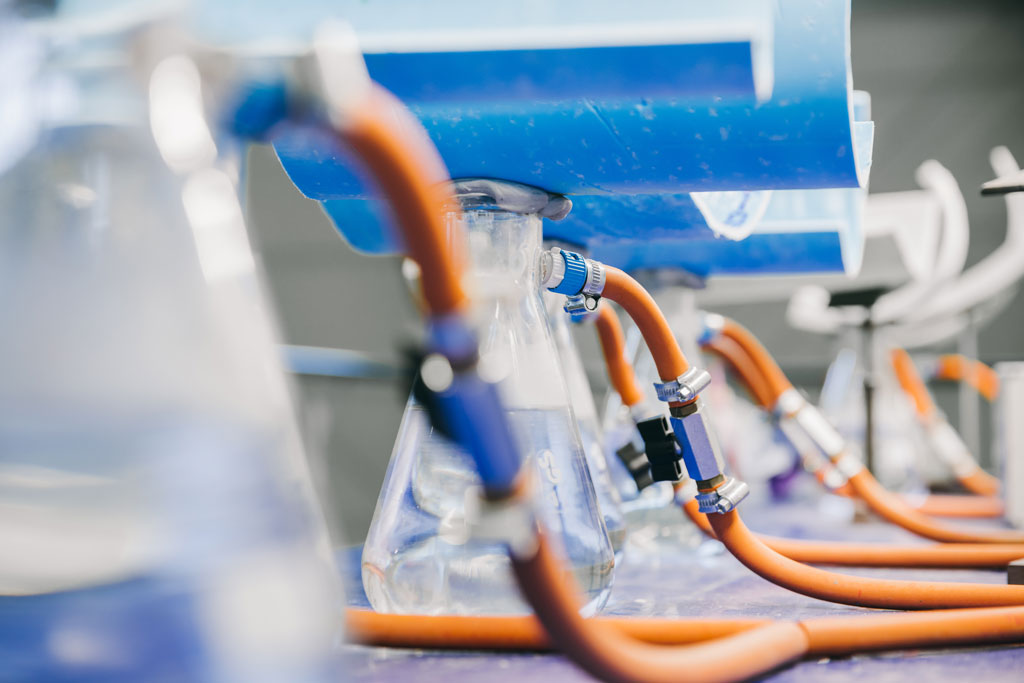
Water tightness test
Certainty through laboratory testing
You can avoid all this by having tested your CIPP by IKT’s lab directly after installation. For you, this is quite simple: You just have to extract a sample from the installed liner and send it to us.
We will determine the most important material parameters and compare them with the expected target specifications. We will also test your sample for water tightness.
Then you will receive an expert test report that can give you peace of mind.
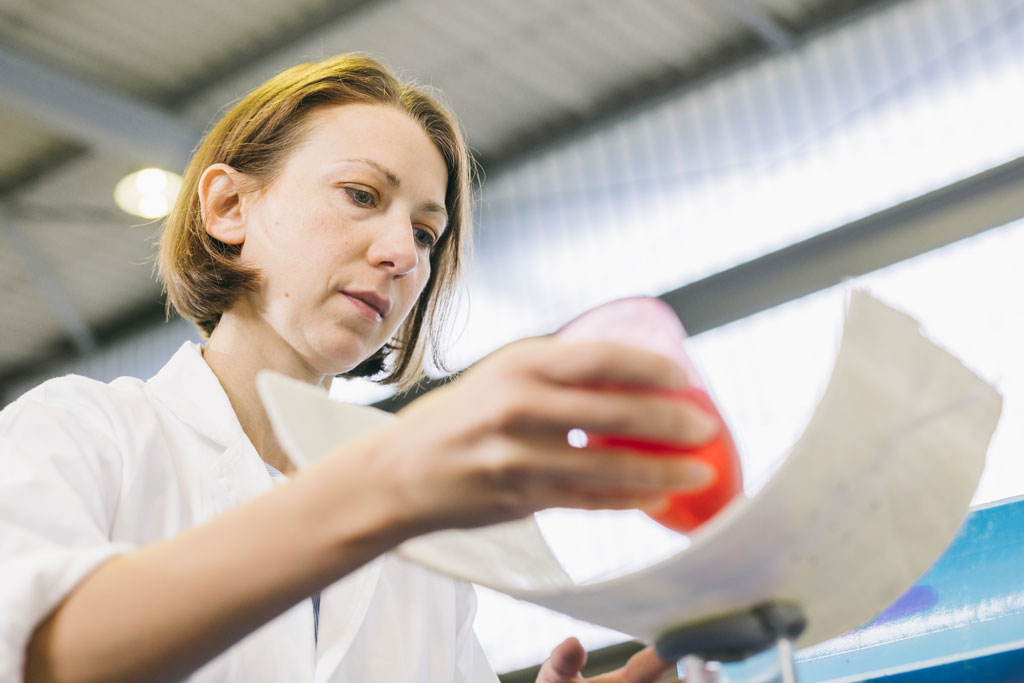
Water tightness test with red dyed water
Neutral and independent testing
Our CIPP test center carries out around 4,000 such quality tests every year. And we do so completely neutrally and independently, free from the economic interests of liner manufacturers and rehabilitation companies.
This is because we are a neutral and non-profit research and testing institute supported by more than 150 German municipalities, including Berlin, Munich and Hamburg.
We have been conducting quality tests on CIPP liners for more than 25 years and for which we have a strong reputation.
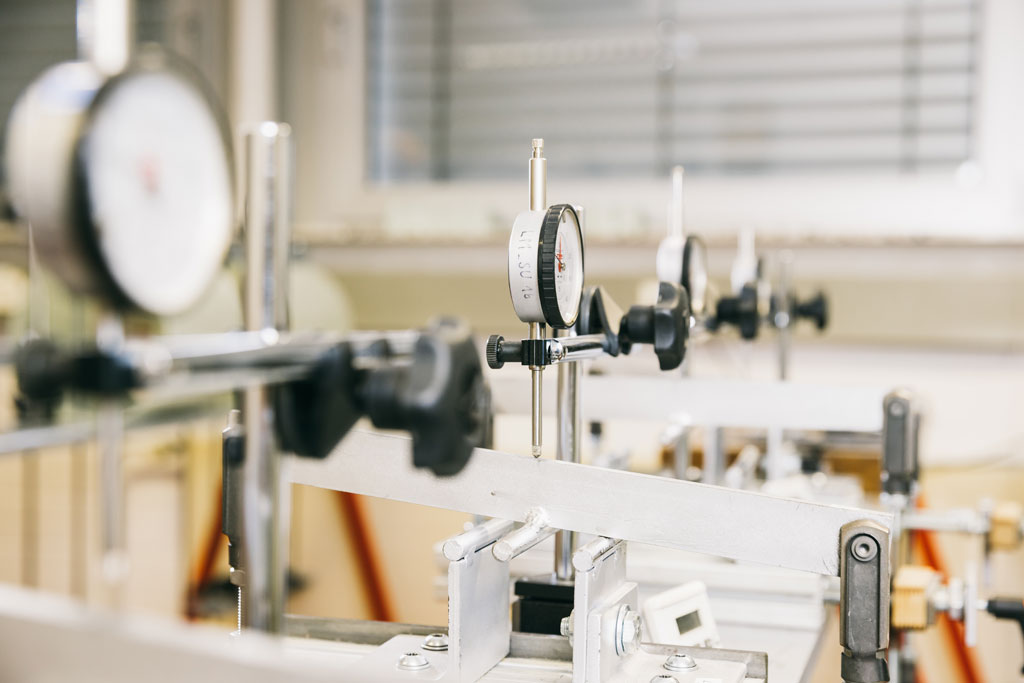
Rig for long-term tests
Contact us for testing
So if you also want to have certainty about the quality of the CIPP installed at your site, contact us and we will make you a quote immediately. We will explain to you how to take the samples and how to send them to us. It is much easier than you think!
Your contact person
Dieter Homann is the longstanding director of the IKT laboratory. He is a widely recognized expert who participates in numerous expert panels in Germany and abroad. He will help you understand the complexities of CIPP quality and interpret test results. Contact him, he will be happy to answer all your questions!

Dieter Homann, Director of IKT’s Test Centre for CIPP liners
Simply address your questions to:
Dieter Homann
Director of IKT’s Test Centre for CIPP
phone: +49 209 17806-0
email: homann@ikt.institute
More information on our CIPP testing procedures and how to send us your samples:
IKT Test Center for CIPP
See also an overview of our CIPP test results in our annual IKT LinerReport from 2003 until today:
IKT-LinerReport
